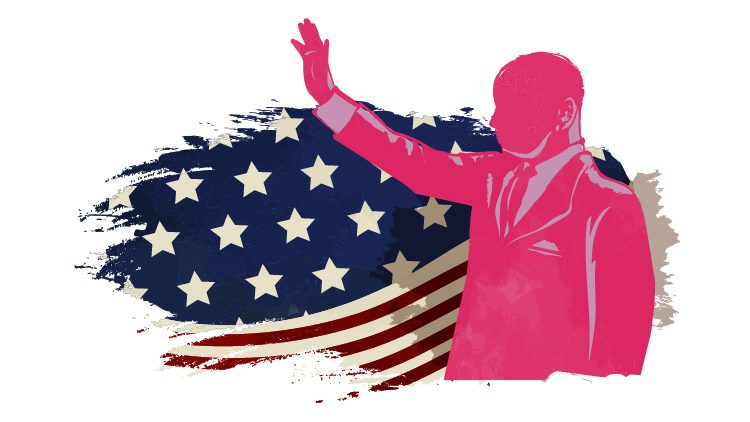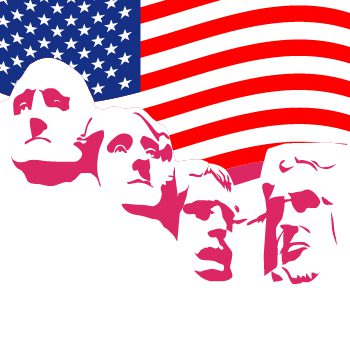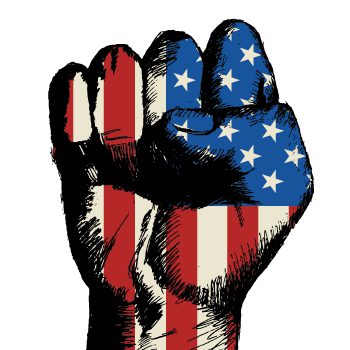
How Did The American Revolution Influence The French?
The Impact of the American Revolution on France
The American Revolution significantly impacted France and its people, ultimately paving the way for the French Revolution. The French Government and King Louis XVI closely followed the events in North America, and many French citizens found inspiration in the struggle for independence by American colonists. Thomas Jefferson, Benjamin Franklin, Arthur Lee, Thomas Paine, and John Adams played essential roles in building the French Alliance. They sought to gain French assistance in the American Revolutionary War, and ultimately, they succeeded in securing the aid of the French fleet and the French navy. The Battle of Bunker Hill, the Battle of Lexington and Concord, the Battle of Saratoga, and the Battle of Yorktown were critical victories for the American government that helped shape French opinion and inspired support for the American cause. The French saw the success of the United States as an example of how a revolution could bring about change and lead to freedom. The Declaration of Independence, with its bold proclamation of individual rights and liberty, also influenced French thinkers and political leaders. It paved the way for the French Revolution and served as a model for the French people struggling to end centuries of monarchy and aristocratic rule.
Moreover, the American Revolutionary War and scientific discovery showed the world what a newly independent nation could achieve. The success of the United States as a nation and the determination of its people to defend their rights inspired other countries to do the same.

French Military Alliance
The impact of the American Revolution on France extended beyond inspiration to direct military support. The French, inspired by the American colonies’ successful rebellion against the British, entered into a strategic military alliance with the newly formed United States. This alliance was pivotal in tipping the scales against the British during the Revolutionary War, as French armies and naval forces provided crucial support, including troops, ships, and supplies. This collaboration not only aided the American cause but also marked a significant shift in global power dynamics, setting a precedent for international military alliances in future conflicts. The alliance strengthened the bonds between the two nations and contributed to the eventual success of the American Revolution, while also sowing seeds of change and revolution in France itself.
The Causes of the French Revolution
While the American Revolution did not directly cause the French Revolution, it significantly impacted France’s people and their perception of their government. Many French citizens, especially ordinary people, were inspired by the success of the American colonists in fighting against the British government and achieving independence.
However, it was not just the success of the American colonists that led to the French Revolution. The French government faced problems, including a weak economy, a large national debt, and a corrupt and inefficient bureaucracy. Significant social and political inequalities also existed between the three estates of French society – the clergy, the nobility, and the ordinary people. The American Revolution highlighted that change was possible and that the British government was not invincible. This inspired many French citizens to begin questioning the legitimacy of their government and to demand change. The writings of Enlightenment thinkers such as Voltaire, Rousseau, and Montesquieu also played a role in shaping public opinion and calling for reform.
In the end, the combination of economic, social, and political factors, combined with the inspiration of the American Revolution and the ideas of Enlightenment thinkers, led to the outbreak of the French Revolution in 1789. The revolution would ultimately lead to the downfall of the monarchy, the execution of King Louis XVI, and the establishment of the French First Republic.

The Outcome of the French Revolution
Like the American Revolution, the French Revolution aimed to overthrow the established system of governance. But unlike the American colonies, which broke away from Britain and created a new method of government, the French revolutionaries had a different agenda. The outcome of the French Revolution was marked by several events, including the Reign of Terror, the rise of Napoleon Bonaparte, and the establishment of the French Empire. One of the French Revolution’s primary outcomes was the monarchy’s end. The King, Louis XVI, was executed, along with thousands of other members of the aristocracy and political opponents. The French Republic was established, and a new system of government based on the principles of liberty, equality, and fraternity was created.
However, the French Revolution was far from over. The Reign of Terror lasted from 1793 to 1794 and saw thousands of people executed for political crimes. The revolutionaries who had fought for the overthrow of the monarchy now turned on each other, leading to widespread violence and chaos.
In 1799, Napoleon Bonaparte seized power in a coup, ending the republican government. He established the French Empire and became its first emperor. While Napoleon’s rule brought about some positive changes, such as establishing a more efficient and centralized government, it also led to wars of conquest that cost countless lives and resources.
Overall, the outcome of the French Revolution was complex and far-reaching. It significantly impacted the world and inspired many other movements for political and social change. However, the cost of the revolution was high, and the lessons learned from it would be debated for generations to come.
The Declaration of Independence
One of the most significant ways the American Revolution influenced the French was through the Declaration of Independence. Written in 1776, this document was a clear and powerful statement of the colonists’ grievances against British rule and their determination to break away and form a new nation. It asserted that all men were created equal and had certain unalienable rights, including life, liberty, and the pursuit of happiness. The Declaration of Independence profoundly impacted the French, who were already grappling with similar inequality, oppression, and political upheaval issues. Many French intellectuals and revolutionaries saw the American struggle for independence as a model for their fight against an autocratic monarchy and a privileged nobility. The Declaration of Independence inspired French thinkers like Voltaire, who praised it as “a masterpiece of political philosophy” and helped to fuel the revolutionary spirit that eventually led to the overthrow of the Bourbon monarchy in 1789. French revolutionaries drew on the ideas and language of the Declaration in their political rhetoric and writings, emphasizing the need for liberty, equality, and popular sovereignty.
Overall, the Declaration of Independence was a key source of inspiration and motivation for the French Revolution, profoundly impacting Europe and the world. It represented a powerful expression of the American colonists’ aspirations for freedom and self-determination. It helped inspire and encourage others to fight for their rights and liberties. Learn more about the USCTS
The Battle of Bunker Hill
One of the most significant events of the American Revolution was the Battle of Bunker Hill. This battle was fought on June 17, 1775, between the American colonial forces and the British army. The American forces inflicted significant casualties on the British army despite losing the fight. The Battle of Bunker Hill was crucial because it was the first major military confrontation between the American colonists and the British army. The battle served as a morale booster for the colonists, who were largely inexperienced and ill-equipped compared to the highly trained British army. The American forces were led by Colonel William Prescott, who famously commanded his troops to “not fire until you see the whites of their eyes” to conserve ammunition. The British forces, led by General Thomas Gage, launched a frontal assault on the American fortifications but were repulsed with heavy casualties. The battle lasted for several hours, with both sides suffering significant losses. Although the British ultimately captured the American fortifications, the cost of their victory was high, with over a thousand casualties. The Battle of Bunker Hill profoundly impacted the American and French revolutions. The American victory showed that the British army was not invincible and inspired other colonies to take up arms against the British. This victory was also a morale boost for the French, who were eager to see the British suffer a defeat.

The Battle of Lexington and Concord
One of the most famous battles of the American Revolution was the Battle of Lexington and Concord. This battle occurred on April 19, 1775, when British troops marched from Boston to Concord to seize military supplies that the colonists had stored there. American militias were prepared to fight back, and they clashed with the British in Lexington and later at Concord’s North Bridge. While the battle was small in scale, it significantly impacted the American Revolution and, in turn, the French Revolution. The Battle of Lexington and Concord showed the colonists they could defeat the mighty British army. The victory gave them newfound confidence and helped unite the colonies behind a common cause.
Furthermore, news of the battle quickly spread to France throughout the colonies and even across the Atlantic. The American Revolution inspired French intellectuals who began to see it as a symbol of the fight against tyranny and oppression. Many French thinkers, such as Voltaire and Montesquieu, had already advocated for greater political freedom and saw the American Revolution as an example of what could be achieved.
The Battle of Lexington and Concord was just one minor skirmish in a long and brutal war. However, it significantly impacted the American Revolution and helped inspire the French Revolution that would occur several years later. Without the determination and bravery of the American colonists, the world may never have seen the rise of modern democracy and the end of oppressive monarchies.

The Battle of Saratoga
The Battle of Saratoga, fought in September and October 1777, was a turning point in the American Revolution. The British army, led by General John Burgoyne, was trying to eliminate New England from the other colonies. However, their plan was foiled when they were stopped at Saratoga by the Continental Army led by General Horatio Gates. The Battle of Saratoga was significant for several reasons. First, it was a major victory for the Continental Army and boosted morale among the colonists. Second, it was a turning point in the war, convincing the French to support the American cause openly. The French had been following the battle from afar, but after Saratoga, they were confident that the Americans could win. The French government sent troops, ships, and supplies to help the Americans, and this aid proved critical in the outcome of the war. The French assistance also had an impact on the French themselves, as it was a factor that contributed to the eventual French Revolution. The Battle of Saratoga also had implications for military strategy. The Continental Army used guerrilla tactics and surprise attacks to defeat the British, proving they could win battles against a superior force. This was a valuable lesson for other revolutionary movements worldwide, which the American Revolution inspired.
The Battle of Yorktown
The Battle of Yorktown is considered one of the most significant events in the American Revolution. It marked the final major battle of the war and resulted in a resounding victory for the American and French forces. This battle would also significantly impact the French and their revolution. The Battle of Yorktown took place from September 28 to October 19, 1781. The American and French forces, led by General George Washington and General Rochambeau, joined in besieging the British troops stationed in Yorktown, Virginia. The British were under the command of General Cornwallis, who had decided to fortify his position at Yorktown and wait for reinforcements to arrive. Despite the British efforts, the American and French forces successfully cut off their supplies and support, leaving them trapped in Yorktown. The battle was intense, and both sides suffered heavy losses. However, the American and French forces were victorious, capturing over 7,000 British soldiers and ending the war. The impact of the Battle of Yorktown was not limited to just the American Revolution. The French watched the battle closely as they supported the Americans during the war. The victory at Yorktown gave the French confidence in their abilities to challenge the British Empire, and it was seen as a sign that the balance of power was shifting away from the British.
Furthermore, the victory at Yorktown played a vital role in the French Revolution, which would begin just a few years later in 1789. The French people were inspired by the Americans’ success in overthrowing the British and believed they could rise against their oppressive monarchy.
Conflicts Shape 18th-Century Politics
In the 18th century, the geopolitical landscape was marked by the military power of colonial powers like Britain and France, which extended their influence across the globe. British power was especially prominent in South America, while French colonies spanned other parts of the world. European conflicts, such as the Seven Years’ War, impacted these territories and led to political instability and shifts in absolute power. Diplomatic negotiations between the warring nations eventually resulted in a preliminary peace treaty. In North America, British America experienced its own upheaval, with Rhode Island playing a significant role in challenging British authority. The British fleet’s presence was a reminder of colonial control, yet the fight for natural rights by the common people persisted. The reign of George III faced various challenges as the call for freedom and independence continued to grow.
In the 18th century, the complex conflict between the British and the Americans was shaped by numerous major factors, including American hostility towards British merchant ships and the disruption of trade with French ports. American merchant ships often found themselves targeted by the British fleet, especially around American shores. The American neutrality policy aimed to balance these tensions, yet it was challenged by the evolving situation. French philosophers influenced political radicals and democratic reforms in American cities, while military strategists sought to protect American troops from a potential French invasion.
John Trumbull, a notable figure of British birth, played a role in chronicling events through his art, which serves as a primary sources today. Meanwhile, political divisions emerged, such as the anti-Revolutionary wing, creating further challenges for peace talks. Alexander Hamilton’s contributions to the discourse were pivotal in shaping the emerging nation’s policies. Overall, this period was marked by a struggle for power and the pursuit of democratic ideals in the face of ongoing conflict.
Lessons Learned from it
The American Revolution was not only a defining moment in the history of the United States, but it also profoundly impacted the rest of the world. One of the countries that the American Revolution most influenced was France. The ideas of freedom, equality, and democracy that inspired the American Revolution would play a pivotal role in the French Revolution, which took place just a few years later. The French Revolution began in 1789 and was a turning point in European history. Like the American Revolution, it was inspired by freedom, equality, and democracy. However, the French Revolution was far more radical than its American counterpart, leading to the execution of King Louis XVI and the Reign of Terror. Despite the excesses of the French Revolution, it significantly impacted the world. The French Revolution helped to spread the idea of democracy throughout Europe, leading to the establishment of democratic governments in countries like Spain and Portugal. The French Revolution also paved the way for the abolition of slavery and the rise of women’s rights. Many lessons can be learned from the American and French Revolutions. One of the most important is the power of ideas. Both revolutions were inspired by freedom, equality, and democracy. These ideas spread worldwide, leading to significant social and political changes. Another lesson is the importance of unity. The American Revolution was won by a coalition of different groups, including farmers, merchants, and soldiers. A diverse group of peasants, workers, and intellectuals drove the French Revolution. The lesson here is that change is more likely to happen when different groups come together and work towards a common goal.
Finally, both revolutions teach us that change is not always easy. The American Revolution took eight long years to win, and the French Revolution was marked by violence and chaos. But in the end, both revolutions succeeded in changing the world. The lesson here is that real change takes time and effort.
Frequently Asked Questions
How did the American Revolution impact the relationship between the United States and France?
The American Revolution profoundly affected the relationship between the United States and France by creating a solid bond of friendship and mutual respect between the two countries. The French provided significant military and financial support to the American colonies during the Revolutionary War, and the United States reciprocated by supporting France during the French Revolution and beyond.
Did the American Revolution influence the French Revolution's violence and extremism?
While the American Revolution did not directly affect the violence and extremism of the French Revolution, it did create a model for revolutionary violence and led some French revolutionaries to adopt similar tactics in their struggle against the monarchy.
How did the American Revolution influence the global spread of democracy and human rights?
The American Revolution profoundly influenced the global reach of democracy and human rights by inspiring other countries and peoples to fight for their political and economic freedoms. The American Revolution’s success also served as a model for other revolutionary movements worldwide.
What was the impact of the American Revolution on the French military?
The American Revolution significantly impacted the French army by providing French officers and soldiers with valuable combat experience and training. The French also provided significant military support to the American colonies during the Revolutionary War, which helped to cement the bond between the two countries.
How did the American Revolution influence the development of French art and culture?
The American Revolution had a limited impact on the development of French art and culture, but it did inspire some French artists and writers to adopt new themes of liberty, democracy, and individual rights in their work. The American Revolution also helped to introduce new ideas and perspectives to French cultural life.

